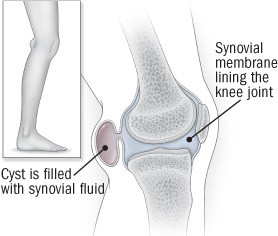
Tips to leverage neuroplasticity to maintain cognitive fitness as you age

Can white noise really help you sleep better?

Celiac disease: Exploring four myths

What is prostatitis and how is it treated?

What is Cushing syndrome?

Exercises to relieve joint pain

Think your child has ADHD? What your pediatrician can do

Foam roller: Could you benefit from this massage tool?

Stepping up activity if winter slowed you down

Common causes of cloudy urine
Diseases & Conditions Archive
Articles
Groin strain vs. hernia pain: How to tell the difference
It can be hard to tell the difference between a groin strain (muscle or tendon tear) and an inguinal hernia (fat or intestine poking through a hole in the abdominal wall in the groin). Both conditions can cause a dull ache or burning pain in the groin. However, a groin strain usually gets better on its own; an inguinal hernia does not, and only gets bigger over time. With hernias a lump can often be felt under the skin; not so with groin strains. Treatment ranges from rest and ice (for a groin strain) to surgery (for a hernia).
Constantly clearing your throat? Here's what to try
When you have a cold, it's normal to feel mucus sitting at the back of your throat, and to have the urge to clear it. Typically this sensation lasts just a few days, but what happens if it lingers for weeks or months?
Answers to common questions about shingles
Shingles is a painful condition caused by the varicella-zoster virus. People typically encounter this virus, which causes chickenpox, in childhood. The virus stays dormant in the body, sometimes for decades, and may re-emerge as shingles. The best way to prevent shingles is by getting vaccinated. People should get the vaccine even if they've had shingles in the past, because it is possible to get shingles more than once. Maintaining healthy habits, such as eating right, getting enough sleep, and managing stress, may also help to prevent shingles by keeping the immune system working well.
Vanquish your varicose veins
Varicose veins are a common, treatable condition. They occur when valves inside the veins weaken and allow blood to flow back toward the feet, instead of up to the heart. People may be more prone to develop them if there are others in their family who have them. Lifestyle changes, such as increasing exercise and wearing compression stockings, can help prevent them. While varicose veins used to be treated surgically, today they are commonly addressed using less invasive office procedures. Treating veins early can help to prevent complications, such as skin pigmentation changes, leg swelling, and skin ulcers.
Why do I need to urinate right when I get home?
A sudden urge to use the bathroom when arriving home, sometimes called latchkey incontinence, occurs when the brain associates coming home with the need to urinate, whether the bladder is full or not. Bladder training may help address this pattern.
What can cause a persistent dry cough?
It's common to have a cough for weeks after an upper respiratory infection. When a cough lasts six weeks or longer, doctors may order a chest x-ray to check for an underlying lung problem. Chronic coughing also can result from medications, postnasal drip, acid reflux, or asthma.
Feeling the burn of acid reflux
Heartburn and gastroesophageal reflux disease are two of the most common digestive-related problems, but they often get confused with each other because they share many of the same traits. While the two conditions are connected, they are quite different. Recognizing the difference can help a person adopt lifestyle changes to manage symptoms and know when to seek other options, like medication and surgery.
Can medication tame chronic inflammation?
Many medications are effective for managing (but not preventing) chronic inflammation. The most common medications include nonsteroidal anti-inflammatory drugs (NSAIDs), corticosteroids, immunosuppressants, and biologics. These drugs can have dangerous side effects, so a physician must oversee their use. Other important ways to manage chronic inflammation include treating underlying causes of inflammation and living a healthy lifestyle, such as cutting out processed foods and taking a 10-minute walk each day. A healthy lifestyle may also help prevent chronic inflammation from developing in the first place.
Save the trees, prevent the sneeze
In many places in the United States, spring is starting earlier— which means more pollen and a longer allergy season. Fortunately, there are steps you can take to manage the impact of seasonal allergies and reduce sneezing and itchy eyes.
Ask the doctor: How do you treat a Baker's cyst?
I have a Baker's cyst in my right knee. It has been drained twice and recurred. Are there any other treatments for it?

Tips to leverage neuroplasticity to maintain cognitive fitness as you age

Can white noise really help you sleep better?

Celiac disease: Exploring four myths

What is prostatitis and how is it treated?

What is Cushing syndrome?

Exercises to relieve joint pain

Think your child has ADHD? What your pediatrician can do

Foam roller: Could you benefit from this massage tool?

Stepping up activity if winter slowed you down

Common causes of cloudy urine
Free Healthbeat Signup
Get the latest in health news delivered to your inbox!
Sign Up











